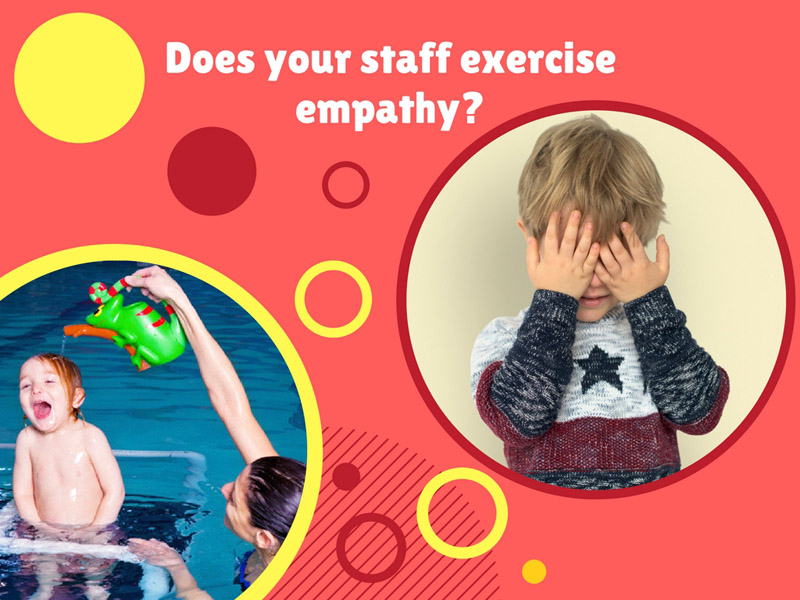
How do you fine tune kindness with your staff? Are they able to exercise empathy with the children that they teach?
Children respond better to instruction when it comes with warmth and positivity, so it is important that teachers create an environment in which the child feels comfortable. Your teachers can help create a positive environment first by being aware that children often come to the pool with lingering emotions. They could be overly tired, or experiencing growing pains. Perhaps they had a long day at school, or they might have just experienced an uncomfortable situation. It is important to keep your “empathy meters” turned up! The student always needs to feel comfortable knowing that the environment is consistent and at the same positive emotional level, every class. This also builds trust between the child and teacher and creates a good bond. In turn this creates a learning environment where they will excel. Children “read” your emotions, it’s important for you to gain the children’s trust.
Empathy is also important for teachers to exercise because there are many situations in which a student will be hesitant or refuse to cooperate. For example, if you have a crying child, sometimes just taking a moment to ask them why they are crying, or giving them a little hug or pat on the back is enough to encourage them back into the lesson. The teacher has to make an effort to understand why the swimmer is behaving the way they are in order to shift their energy into a more positive direction.
A few tips on how to help your staff exercise empathy and compassion:
• When training your staff provide them with different scenarios and behavioural solutions; such as a simple hug, encouraging words and actions such as “great job” followed by a high five.
• When interacting with the children, make sure your staff are communicating genuinely, It’s not always what you say, it’s how you say it …..most communication is non-verbal.
• Video tape the staff so that they see how they are projecting as sometimes the staff might not be aware of something as simple as the expressions they are exhibiting.
